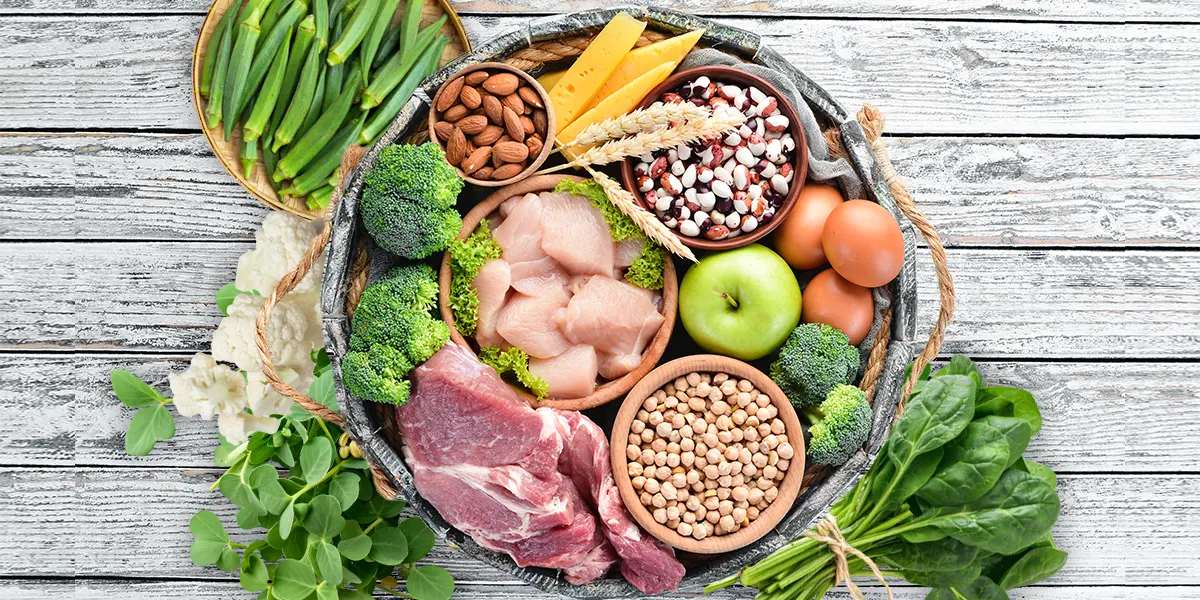High-protein meal plans for muscle gain help you build lean muscle, speed up recovery, and maintain steady energy levels. A good balance of protein-rich foods, complex carbs, and healthy fats maximizes results from your workouts. Consuming quality protein sources at the right times supports muscle repair and growth. Combining nutrient-dense foods with proper training ensures steady progress. This guide explores meal ideas, timing strategies, and food combinations that keep you on track. Whether you are a beginner or advanced lifter, a structured plan makes the difference between slow progress and noticeable strength gains.

Why Protein Matters for Muscle Growth
Protein forms the building blocks of muscle tissue. When you train, muscle fibers experience micro-tears. Eating lean protein sources like chicken breast, eggs, fish, or plant-based proteins repairs these fibers. The repair process makes muscles stronger and thicker over time. Consuming enough high-protein meals throughout the day prevents muscle breakdown and supports steady gains. Aim for at least 1.6 to 2.2 grams of protein per kilogram of body weight daily. Consistency in hitting your target matters more than overloading in one meal.
Macronutrient Balance in Meal Plans
A muscle gain meal plan is not just about protein. You need complex carbohydrates for training fuel and healthy fats for hormone balance. A balanced plate could include brown rice, quinoa, or sweet potatoes for carbs, paired with a protein source and healthy fat like avocado or olive oil. Skipping carbs can limit workout intensity, while too little fat can slow recovery. Keep meals nutrient-dense and portion-controlled. Distribute carbs around workouts for better performance and protein evenly throughout the day for optimal absorption. This balance prevents energy crashes and helps you stay consistent.
:max_bytes(150000):strip_icc():format(webp)/EWL-7-Day-Meal-Plan-To-Gain-More-Muscle-Full-240_preview_maxWidth_4000_maxHeight_4000_ppi_300_quality_100-fb433b1dc07b48518346d5d8cdcab62b.jpg)
Best High-Protein Foods for Muscle Gain
Your high-protein diet should feature variety to cover all essential amino acids. Top choices include chicken breast, lean beef, turkey, eggs, salmon, tuna, Greek yogurt, and whey protein. Plant-based options like tofu, lentils, edamame, and chickpeas also support growth. Mixing animal and plant proteins ensures you get both fast-digesting and slow-digesting sources. This combination helps fuel workouts, repair muscle, and sustain growth overnight. Always choose fresh, minimally processed foods for better nutrient quality and digestion.

Sample 1-Day High-Protein Meal Plan
Breakfast: 3 scrambled eggs with spinach + 1 slice whole-grain toast + 1 cup Greek yogurt.
Snack: Whey protein shake with banana.
Lunch: Grilled chicken breast, quinoa, and steamed broccoli with olive oil.
Snack: Cottage cheese with mixed berries.
Dinner: Baked salmon, sweet potato, and asparagus.
Evening: Casein protein shake or tofu stir-fry with vegetables.
This structure spreads high-protein meals throughout the day, keeps energy levels stable, and optimizes recovery. Adjust portion sizes based on body weight, activity level, and training intensity.
Timing and Frequency of Meals
Eating every 3–4 hours keeps muscle protein synthesis active. Start the day with a protein-rich breakfast, fuel workouts with pre-training carbs and protein, and recover with a post-workout protein shake or meal. Evening meals should include slow-digesting proteins like casein to prevent overnight muscle breakdown. Skipping long gaps between meals reduces your muscle-building potential. Consistency and timing matter as much as total daily intake.
Staying Consistent and Tracking Progress
Track your meals, protein intake, and workout progress. Use a food diary or app to stay accountable. Adjust high-protein meal plans as strength, weight, and goals change. Consistency turns a good plan into lasting results.
